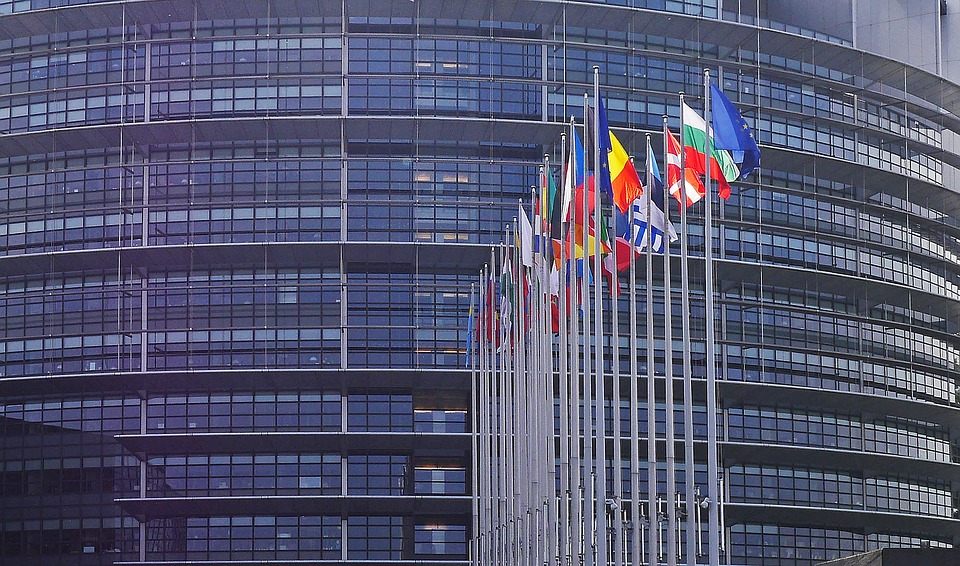
In protest of decades of racist policy, denial of basic human rights, and democratic backsliding at the hands of the Fidesz regime in Budapest, the European Roma Rights Centre (ERRC) will boycott the upcoming Hungarian Presidency of the Council of the European Union. We will not vindicate these serial rights abuses and destruction of democratic institutions in Hungary by participating in the European Platform for Roma Inclusion, nor any other event hosted by the Hungarian EU Presidency. As human rights activists, participation would be a betrayal of our values and of our friends and colleagues in Hungary. We urge other civil society organisations and activists to do the same.
The European Platform for Roma Inclusion, alongside European Roma Summits, once brought together people who mattered; elected representatives, presidents of member states, as well as civil society activists all came together to discuss pragmatic solutions to rampant human rights violations across the bloc. Whilst in recent years the role of the platform has diminished in terms of its setting the agenda on Roma Rights policy, it still represents a willingness from the European Commission to discuss policy issues concerning more than 6 million Romani citizens of the European Union, as well as the many millions more living in accession countries in Eastern Europe.
On 1st July, Hungary will take the rotating Presidency of the Council of the European Union and will have a corresponding role in the organisation of the European Platform for Roma Inclusion. Whilst the general weakening of the Platform in recent years is obviously detrimental to the movement for Romani equality, a Platform organised by the Hungarian Government represents an altogether more disturbing proposition for those who defend human rights.
In 2021, Hungary introduced anti-LGBTQI+ legislation that restricts freedom of speech and children’s rights by banning the promotion of LGBTQI+ positive content in educational materials or public broadcast media for minors. The European Parliament noted that, far from being an isolated incident, this “constitutes another intentional and premeditated example of the gradual dismantling of fundamental rights in Hungary, where state-sponsored LGBTQI-phobia and disinformation campaigns have become tools for political censorship.”
In 2022, the European Parliament declared that it no longer considered Hungary to be a full-democracy and labelled Prime Minister Viktor Orbán’s regime an “electoral autocracy.” Another European Parliament Resolution in January this year condemned Hungary’s systemic discriminatory practices against academia, journalists, political parties, and our fellow civil society activists. MEPs overwhelmingly voted to condemn practices of manipulated public procurement procedures, takeover bids by the government and entities with ties to the Prime Minister, and the use of EU funds to enrich the government’s political allies. The resolution specifically questioned the competency and suitability of the Hungarian government to credibly fulfil its role in holding the Council Presidency considering its serious and persistent breaches of EU values.
To add to this list from a Roma Rights perspective, the ERRC highlights:
- Hungary’s serial corruption of EU funding for Roma inclusion (including direct use of EU funds to evict Roma and construct a newly segregated community in Nyíregyháza).
- Hungary’s lack of progress towards the desegregation of its education system, despite a European Commission infringement procedure now in its 8th year without notable improvement.
- Prime Minister Orbán’s interference in a Supreme Court ruling which found in favour of schoolchildren who were illegally segregated in Gyöngyöspata. Following the judgment, the government amended laws regarding the placement of security guards in Roma-majority schools, as well as removing the compensation mechanism in civil law litigation against educational institutions. This means that now parents who sue schools for segregation can no longer claim financial compensation, but only training which is provided by the same institution that violated their children’s rights in the first place.
- Lack of action or condemnation of the once again growing threat of far-right street movements focussing on ‘gypsy crime’ in Hungary. The last time such movements arose resulted in a wave of far-right terror that included neo-Nazi firebombing of Romani homes, vigilante street patrols of Romani neighbourhoods, assassinations of Romani individuals by sniper rifle, and the murder of Romani children by automatic weapons as they fled their burning house.
In April this year, the European Parliament highlighted perhaps the most worrisome development in democratic backsliding in recent years in Hungary: the role of the newly created Sovereignty Protection Office. This office was created by a law passed at the end of last year, influenced by Putin’s 2012 foreign agent’s law. It gives the newly created office far-reaching powers of surveillance, financial audit, and even criminal prosecution of any individual, political party, or civil society organisation with foreign funding that it deems to have influence over public discourse. Its mandate is vague and its reach undefined, meaning it provides the government carte blanche to turn the intelligence services against those it deems to be against Hungarian sovereignty. This law poses a direct and immediate threat to our friends and colleagues, to human rights activists, lawyers, and opposition politicians in the country.
In light of these developments, the Commission unblocking €10.2 billion in previously frozen EU funds, against the will of the Parliament, was an unacceptable overstepping of their role as an unelected body and constituted a major breach of its duties as guardian of the Treaties. The European Parliament described this as an “incomprehensible decision” and is exploring legal action to remedy this democratic breach.
The European Roma Rights Centre supports the values of freedom, fundamental rights, and democracy for Roma and all Hungarian citizens. For these reasons, the ERRC cannot condone the actions of a far-right Hungarian Government and be complicit by participating in the 17th European Platform for Roma Inclusion. Participation in an event where the agenda is set by those who promote an “illiberal democracy” and flirt with far-right authoritarianism would be tacit approval of their actions against basic human rights.
We urge other activists and organisations to do the same and boycott the Platform, as well as other events organised by the Hungarian Presidency. We ask you to consider the message that your participation in these events sends regarding our collective respect for fundamental rights, as well as what it says about our role as active citizens of Europe if we appear to reconcile with a regime so contrary to our values as Europeans.
#BoycottHungaryEUPresidency
#MagyarEUElnökségBojkott
redaktionen@dikko.nu
Att vara en oberoende tidning kostar pengar därför använder vi oss av crowdfunding. Det innebär att människor med små eller stora summor hjälper till att finansiera vår verksamhet. Magasin DIKKOs insamlingen sker via swish: 123 242 83 40 eller bg: 5534-0046
Vill du annonsera eller sponsra, synas eller höras i våra media?
Kontakta oss på redaktionen@dikko.nu
eller ring 0768 44 51 61
IBAN: SE19 9500 0099 6042 1813 4395
BIC: NDEASESS



